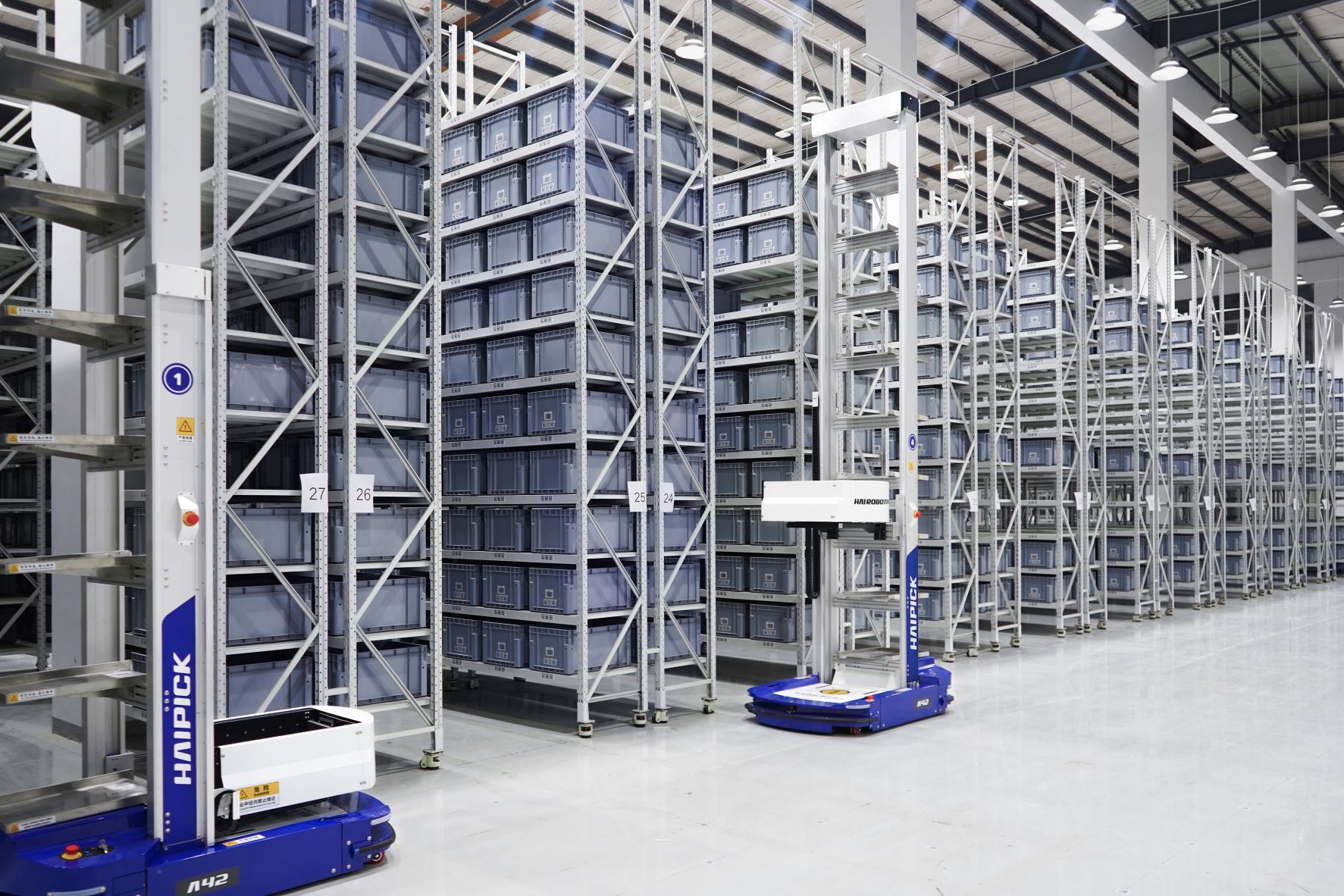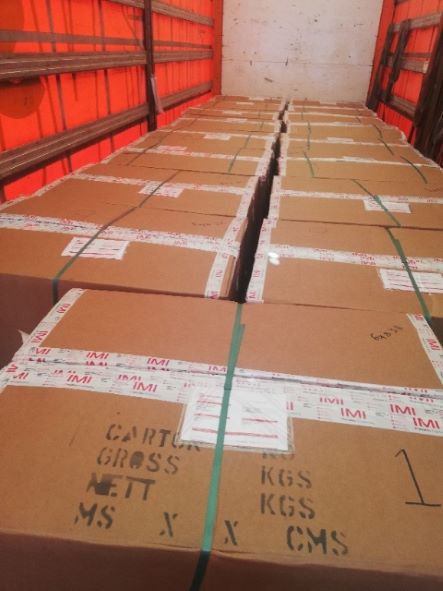HAI ROBOTICS, a pioneer in Autonomous Case-handling Robot (ACR) systems for warehouse logistics, will for the first time display its technology in Italy, at the upcoming Intralogistica Italia 2022 from 3rd-6th May in Fiera Milano.
The company, with European headquarters in the Netherlands, will run live demos of its solution with HAIPICK A42 robot at the tradeshow in Italy (Booth C11/D12 Hall 10), which sees rising demand for more flexible and cost-efficient Goods-to-Person order-picking solutions as e-commerce grows fast in recent years.
Davide Tuzi, HAI ROBOTICS‘ Country Manager Italy, said: “Our ACR system is an excellent solution for the challenges the Italian warehousing/logistics market is facing, and an excellent solution deserves a team of excellent people to support it. This is the kind of team we are building up in Europe, and in Italy in particular.
“We aim to create a local network of system integrator, installation and service partners, so that any user of ACR systems can expect rapid and high-quality service wherever they are in Italy.”
The second-largest manufacturing country in Europe, Italy has strong curiosity for automation, including automating warehouses and distribution centres, as the government is pushing forward to develop Industry 4.0, Tuzi said.
As the EU’s third-largest economy, Italy registers solid growth in e-commerce, catalysed by Covid-19 lockdown. The country is the 14th-largest market for eCommerce with a revenue of US$26bn in 2021, according to Statista Digital Market Outlook.
Also, as fewer people want to do hard manual labour, the lack of enough qualified workers is another driver for warehouses in Italy to turn their eyes on automation, Tuzi said, noting robots will improve the work environment in warehouses.
HAI ROBOTICS‘ ACR systems, using HAIPICK robots doing picking and sorting, offer a warehousing efficiency of three to four times faster than manual work and allow maximum space utilisation. The HAIPICK A42 robot can reach as high as 8m and carry eight loads of totes/cartons in one movement to continuously feed Goods-to-Person stations. The robot, supported by AI algorithms and equipped with high-precision cameras, boasts 99.99% picking and sorting accuracy, thus eliminating the risk of returns due to errors.
The ACR systems can be implemented in a very short time and are easily scalable. Clients can scale the project according to their growth curves with little disruption to operation. Hence, they are ideal for existing warehouses.
The systems have been implemented in more than 500 projects around the world, including leading brands of e-commerce, 3PL, manufacturing and apparels, many of which have faced strong seasonal peaks.
read more







 Louise Inglese (LI): It is a very long flight! But we know we have to come to expos to promote our products because you need to demonstrate it for people to really get it. I could send a brochure, but it’s never going to be the same. When we’re face to face, people get to feel it and touch it and get the full sense of how safe they are and how solid they are, their quality
Louise Inglese (LI): It is a very long flight! But we know we have to come to expos to promote our products because you need to demonstrate it for people to really get it. I could send a brochure, but it’s never going to be the same. When we’re face to face, people get to feel it and touch it and get the full sense of how safe they are and how solid they are, their quality